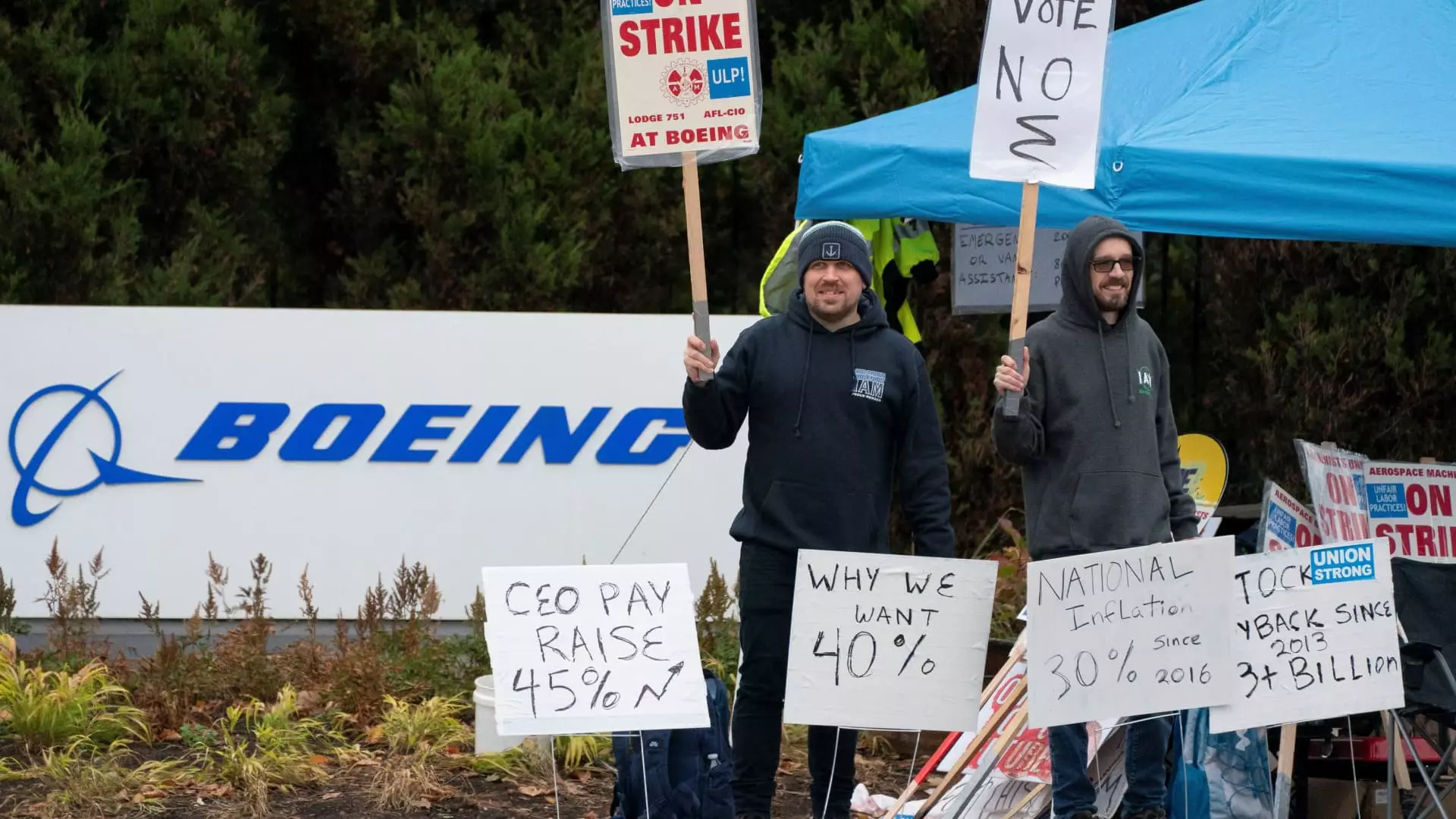The recent developments surrounding Boeing and the International Association of Machinists and Aerospace Workers District 751 have spotlighted the tensions between labor rights and corporate interests. After a protracted strike lasting seven weeks, a new pay proposal has emerged, signaling a possible resolution to the labor dispute. However, this situation epitomizes the challenges that both Boeing and its workforce face in an evolving economic landscape, marked by rising living costs and job security uncertainties.
Boeing’s machinists have exhibited considerable resolve in standing firm against previous offers. The strike commenced on September 13 after a tentative agreement failed to garner necessary approval from workers. This represents not only a labor negotiation but also a broader struggle for dignity and financial stability in an era where inflation continues to erode real wages. As demands for higher compensation grow amid soaring living costs, Boeing seems caught between the need to maintain profitability and the essential need to provide adequate pay for its workers.
The new proposal on the table entails a 38% wage increase over a four-year period, a subtle yet significant improvement from an initial offer of 35%. Moreover, this adjustment translates to cumulative pay increases nearing 44%, boosting worker compensation to an average annual pay of $119,309 by the contract’s conclusion. This proposal also comes with a choice between a one-time $12,000 ratification bonus or a combination of a $7,000 bonus along with a $5,000 contribution to a 401(k) plan.
While these figures may appear attractive at first glance, the context is crucial. Boeing has been grappling with massive losses – over $6 billion in the last quarter – largely attributable to production flaws and safety concerns. The worker’s achievements must be celebrated; yet one must question if these concessions hold long-term merit or are merely short-term solutions to a more systemic issue within the company. The union’s leaders have expressed that prolonging the strike would be counterproductive, indicating that they perceive this proposal as a critical juncture.
The Biden administration has intervened in the negotiations, highlighting the importance of this labor dispute not just to Boeing but to the U.S. economy as a whole. The potential impact on employment figures is evident; strikes of this magnitude create ripple effects that can disrupt local economies and even national employment reports. As a symbol of American manufacturing prowess and technological innovation, Boeing’s struggles reflect deeper uncertainties in the aerospace sector, especially with other giants like Lockheed Martin and Airbus watching closely.
Acting Labor Secretary Julie Su’s engagement with both parties underlines the gravity of the situation. Workers’ victories in securing raised wages will likely encourage similar pursuits across various sectors, especially where corporations have faced pressure to up their compensation in response to an inflationary environment. This situation transcends Boeing, potentially influencing labor relations across American manufacturing.
Boeing’s CEO, Kelly Ortberg, has aptly underscored the necessity for unity among employees and management. Following a tumultuous period rife with production issues and safety controversies, the company must regain its focus to ensure stability. A return to the factories is not just about labor; it’s about restoring trust in a company that has lost much of its luster due to prior mismanagement and negative publicity.
While the proposed wage increases and bonuses may be steps in the right direction, it’s essential for Boeing to adopt a more holistic approach towards addressing worker grievances. They must engage in ongoing dialogue with the union and employees to forge a sustainable path forward that balances corporate goals with worker welfare. As the industry continues to adapt to unpredictable global economic conditions, ‘returning to normal’ may not suffice. Instead, it is pivotal for organizations like Boeing to innovate in their labor relations and ensure that the men and women powering the assembly lines are recognized, heard, and fairly compensated.
This strike and its negotiations epitomize not only labor struggles within Boeing but potentially signal a turning point in the relationship between American corporations and their workers, with implications that will resonate long after the final votes are cast.

